US Department of Health and Human Services (HHS)
See the following -
OSEHRA 2018: Calling all Abstracts for the OSEHRA Summit
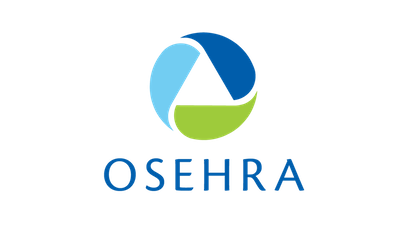 Plans for our 7th Annual Summit, The Open Road for Government Innovation, are well underway! This year's event will be held from July 18 - 20, 2018 and the Program Committee is looking forward to receiving an abundance of abstracts from the community. All are invited to participate and submit their proposals for presentation, poster, and/or roundtable discussion. All submissions are due no later than Friday, April 13, 2018.
Plans for our 7th Annual Summit, The Open Road for Government Innovation, are well underway! This year's event will be held from July 18 - 20, 2018 and the Program Committee is looking forward to receiving an abundance of abstracts from the community. All are invited to participate and submit their proposals for presentation, poster, and/or roundtable discussion. All submissions are due no later than Friday, April 13, 2018.
- Login to post comments
OSEHRA 2019 Summit Dates Announced
 Open Source Electronic Health Record Alliance (OSEHRA) is pleased to announce its 8th Annual Open Source Summit: Open SaaS - Open Source in the Cloud from Tuesday, July 9 through Wednesday, July 10, 2019 at the Bethesda North Marriott Hotel and Conference Center, just north of Washington, D.C. This year's two-day Summit will showcase leading-edge, open source initiatives and highlight the increasing level of public-private partnership in major programs and agencies. Open source software has become key to both implementation and interoperability as more and more programs opt for cloud-based solutions and software-as-a-service delivery models. This Summit will address ways to optimize open source utilization and community involvement in this new playing field.
Open Source Electronic Health Record Alliance (OSEHRA) is pleased to announce its 8th Annual Open Source Summit: Open SaaS - Open Source in the Cloud from Tuesday, July 9 through Wednesday, July 10, 2019 at the Bethesda North Marriott Hotel and Conference Center, just north of Washington, D.C. This year's two-day Summit will showcase leading-edge, open source initiatives and highlight the increasing level of public-private partnership in major programs and agencies. Open source software has become key to both implementation and interoperability as more and more programs opt for cloud-based solutions and software-as-a-service delivery models. This Summit will address ways to optimize open source utilization and community involvement in this new playing field.
- Login to post comments
Overdue Outbreak Detection System Leaves Patchwork Defense
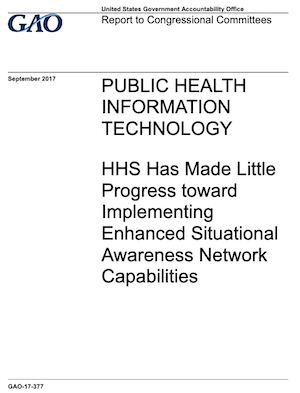 The U.S. should have had a nationwide network to monitor for the next viral outbreak or biological threat a decade ago. It still doesn't. Instead, public health leaders make do with a patchwork system while waiting for the Department of Health and Human Services races to get its integrated network in service by a new 2023 congressional deadline. Until that nationwide monitoring system is in place, the U.S. runs the risk that a biological threat like a disease outbreak will take hold before it's noticed. "The risk is that we don't have the level of surveillance that we need. The risk is that there are things basically flying under the radar," said Helen Boucher, an infectious diseases clinician at Tufts Medical Center in Boston and director of the university's Center for Integrated Management of Antimicrobial Resistance.
The U.S. should have had a nationwide network to monitor for the next viral outbreak or biological threat a decade ago. It still doesn't. Instead, public health leaders make do with a patchwork system while waiting for the Department of Health and Human Services races to get its integrated network in service by a new 2023 congressional deadline. Until that nationwide monitoring system is in place, the U.S. runs the risk that a biological threat like a disease outbreak will take hold before it's noticed. "The risk is that we don't have the level of surveillance that we need. The risk is that there are things basically flying under the radar," said Helen Boucher, an infectious diseases clinician at Tufts Medical Center in Boston and director of the university's Center for Integrated Management of Antimicrobial Resistance.
- Login to post comments
Pandemic and all-hazards preparedness, response law emboldens U.S. disaster recovery efforts
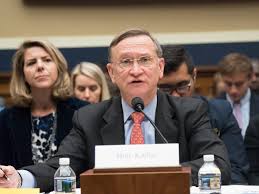 The Pandemic and All-Hazards Preparedness and Advancing (PAHPA) Innovation Act, S. 1379, became law on Monday with the president's signature, prompting accolades from national stakeholders, company executives and federal lawmakers. The far-reaching law ensures the United States will be better prepared to respond to a wide range of public health emergencies, whether man-made or occurring through a natural disaster or infectious disease. Overall, the law aims to bolster the nation's health security strategy, strengthen the country's emergency response workforce, prioritize a threat-based approach, and increase communication across the advanced research and development of medical countermeasures (MCMs), among numerous provisions contained in the law.
The Pandemic and All-Hazards Preparedness and Advancing (PAHPA) Innovation Act, S. 1379, became law on Monday with the president's signature, prompting accolades from national stakeholders, company executives and federal lawmakers. The far-reaching law ensures the United States will be better prepared to respond to a wide range of public health emergencies, whether man-made or occurring through a natural disaster or infectious disease. Overall, the law aims to bolster the nation's health security strategy, strengthen the country's emergency response workforce, prioritize a threat-based approach, and increase communication across the advanced research and development of medical countermeasures (MCMs), among numerous provisions contained in the law.
- Login to post comments
Pandemic Stresses National Need for Seamless Information Sharing Between Healthcare Providers, Black Book 2020 Interoperability Surveys
 Two of three consumers revealed they will consider changing their physician and hospital providers in the coming year after learning how their health record was not shareable or available or was blocked in the past year...Five hundred and nine managers of frontline providers confirm the lack of general interoperability across the entire U.S. health care system has detracted from COVID-19 patient care, led to poor health outcomes and higher expenditures, and left population health data muddy and deficient...."Portability of data in the middle of this pandemic is vital," said Doug Brown, President of the survey organization Black Book Research. "But resolving systemic data blocking and platforms interfering with the exchange of patient data are not on the industry's front burner."
Two of three consumers revealed they will consider changing their physician and hospital providers in the coming year after learning how their health record was not shareable or available or was blocked in the past year...Five hundred and nine managers of frontline providers confirm the lack of general interoperability across the entire U.S. health care system has detracted from COVID-19 patient care, led to poor health outcomes and higher expenditures, and left population health data muddy and deficient...."Portability of data in the middle of this pandemic is vital," said Doug Brown, President of the survey organization Black Book Research. "But resolving systemic data blocking and platforms interfering with the exchange of patient data are not on the industry's front burner."
- Login to post comments
popHealth App Challenge Launched by ONC and Health 2.0
 We should be seeing major improvements to the open source popHealth reporting tool as a result of a Challenge Award just announced by the Office of the National Coordinator for Health Information Technology (ONC) and Health 2.0. It is hoped that the awards will motivate developers to create innovative applications that will enhance the open source tool beyond its current capabilities. The hope is that the challenge will generate new methods of leveraging the program’s current reporting functions and open source framework to help providers better understanding and care for patient populations...
We should be seeing major improvements to the open source popHealth reporting tool as a result of a Challenge Award just announced by the Office of the National Coordinator for Health Information Technology (ONC) and Health 2.0. It is hoped that the awards will motivate developers to create innovative applications that will enhance the open source tool beyond its current capabilities. The hope is that the challenge will generate new methods of leveraging the program’s current reporting functions and open source framework to help providers better understanding and care for patient populations...
- Login to post comments
Regenstrief Institute Research Scientist Theresa Cullen, M.D., Receives Women In Leadership Award
 Regenstrief Institute research scientist Theresa Cullen, M.D., has won a Leading for Impact, Women in Leadership award. The award recognizes women who are creating impact and leading programs across the federal technology, health and consulting community. The award is given by FedHealthInnovation & Technology (FedHealthIT), which is a consolidated news source for information related to federal health agencies. Dr. Cullen also is the associate director of the Regenstrief Institute Global Health Informatics program and the interim director of strategic planning and communications for LOINC. She recently led a project to help the United States government's Indian Health Service identify and define its needs for a new health information technology system.
Regenstrief Institute research scientist Theresa Cullen, M.D., has won a Leading for Impact, Women in Leadership award. The award recognizes women who are creating impact and leading programs across the federal technology, health and consulting community. The award is given by FedHealthInnovation & Technology (FedHealthIT), which is a consolidated news source for information related to federal health agencies. Dr. Cullen also is the associate director of the Regenstrief Institute Global Health Informatics program and the interim director of strategic planning and communications for LOINC. She recently led a project to help the United States government's Indian Health Service identify and define its needs for a new health information technology system.
- Login to post comments
Relentless Cyber Attacks Pressure Hospital Operations
 Ever-increasing cyberattacks on the US public healthcare sector will place material revenue and expense pressures on not-for-profit (NFP) hospitals and health systems, Fitch Ratings says. The healthcare sector has seen a historic increase in the number and severity of cyber assaults over the past 18 months. The sector is viewed as a target-rich environment due to the large amount of sensitive data that healthcare entities maintain for patient care and operations.
Ever-increasing cyberattacks on the US public healthcare sector will place material revenue and expense pressures on not-for-profit (NFP) hospitals and health systems, Fitch Ratings says. The healthcare sector has seen a historic increase in the number and severity of cyber assaults over the past 18 months. The sector is viewed as a target-rich environment due to the large amount of sensitive data that healthcare entities maintain for patient care and operations.
- Login to post comments
Rep. Burgess' Office Releases Draft Interoperability Bill for Discussion
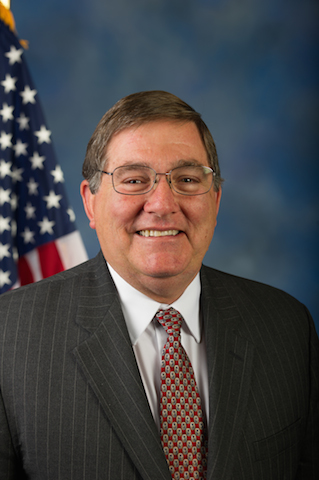 The office of Rep. Michael Burgess, MD (R-TX) released a draft of the interoperability bill that they have been working for the past several months on Friday. Rep. Burgess, one of the few physicians in Congress, has been working very hard with his staff to come up with legislation that can fix the current Health IT "lock-in" crisis. This is a bipartisan effort that has full backing from the top leadership in Congress. The staff is seeking input from the Health IT community on the draft bill. Burgess's office will take comments on the draft through March 13. Rep. Burgess' staff was kind enough to provide Open Health News with a copy of the draft legislation. We have posted the entire draft bill as is below and will be writing some our thoughts over the next few days.
The office of Rep. Michael Burgess, MD (R-TX) released a draft of the interoperability bill that they have been working for the past several months on Friday. Rep. Burgess, one of the few physicians in Congress, has been working very hard with his staff to come up with legislation that can fix the current Health IT "lock-in" crisis. This is a bipartisan effort that has full backing from the top leadership in Congress. The staff is seeking input from the Health IT community on the draft bill. Burgess's office will take comments on the draft through March 13. Rep. Burgess' staff was kind enough to provide Open Health News with a copy of the draft legislation. We have posted the entire draft bill as is below and will be writing some our thoughts over the next few days.
Report on ONC’s Working Session on Patient Identity and Matching
 On Monday, August 31, I attended the final Working Session on Patient Identity and Matching. This virtual event was hosted by the Office of the National Coordinator for Health IT (ONC). This Working Session was a followup to an earlier session back in June 2020. The event last week had over 300 attendees and covered a wide range of topics and technologies related to patient identity and matching. These ONC Working Sessions are being driven by requirements that are part of the 21st Century Cures Act as well as a Congressional request from December 2019 to continue to "...evaluate the effectiveness of current [patient identity and matching] methods and recommend actions that increase the likelihood of an accurate match of patients to their health care data." Much of the focus of this study has been on whether a national patient identifier should be implemented in the US.
On Monday, August 31, I attended the final Working Session on Patient Identity and Matching. This virtual event was hosted by the Office of the National Coordinator for Health IT (ONC). This Working Session was a followup to an earlier session back in June 2020. The event last week had over 300 attendees and covered a wide range of topics and technologies related to patient identity and matching. These ONC Working Sessions are being driven by requirements that are part of the 21st Century Cures Act as well as a Congressional request from December 2019 to continue to "...evaluate the effectiveness of current [patient identity and matching] methods and recommend actions that increase the likelihood of an accurate match of patients to their health care data." Much of the focus of this study has been on whether a national patient identifier should be implemented in the US.
- Login to post comments
Securing Health Data Means Going Well Beyond HIPAA
A two-decade-old law designed to protect patients’ privacy may be preventing health care organizations from doing more to protect vulnerable health care data from theft or abuse. The Health Insurance Portability and Accountability Act (HIPAA) established strict rules for how health data can be stored and shared. But in making health care providers vigilant about privacy protection, HIPAA may inadvertently distract providers from focusing on something just as important: overall information security...
- Login to post comments
Senate hearing focuses on potential delay of MU Stage 3
Despite the federal government's best intentions to create an interoperable healthcare landscape, the Meaningful Use program has yet to truly prevent information blocking by both providers and vendors, legislators on the Senate's Health, Education, Labor & Pensions committee declared at a hearing Thursday. To that end, they led a discussion focused on potentially delaying Stage 3 of the program, proposed in late March.
- Login to post comments
Study Suggests Medical Errors Now Third Leading Cause of Death in the U.S.
 Analyzing medical death rate data over an eight-year period, Johns Hopkins patient safety experts have calculated that more than 250,000 deaths per year are due to medical error in the U.S. Their figure, published May 3 in The BMJ, surpasses the U.S. Centers for Disease Control and Prevention’s (CDC’s) third leading cause of death — respiratory disease, which kills close to 150,000 people per year. The Johns Hopkins team says the CDC’s way of collecting national health statistics fails to classify medical errors separately on the death certificate. The researchers are advocating for updated criteria for classifying deaths on death certificates.
Analyzing medical death rate data over an eight-year period, Johns Hopkins patient safety experts have calculated that more than 250,000 deaths per year are due to medical error in the U.S. Their figure, published May 3 in The BMJ, surpasses the U.S. Centers for Disease Control and Prevention’s (CDC’s) third leading cause of death — respiratory disease, which kills close to 150,000 people per year. The Johns Hopkins team says the CDC’s way of collecting national health statistics fails to classify medical errors separately on the death certificate. The researchers are advocating for updated criteria for classifying deaths on death certificates.
- Login to post comments
Tech Companies Blew Their Chance with Health Records
Turns out, though, that the tech industry is just as selfish as any other private concern. A new report from the National Coordinator for Health Information Technology finds that instead of innovating, companies developing electronic health records did their best to create expensive systems that were very difficult to share, all in the hope of locking clients into lucrative, long-term contracts. Instead of developing standardized, open source software that would allow the easy transfer of health records from a doctor's office in Houston to an emergency room in Dallas, software developers sold systems that make such a transfer almost impossible if the doctor and hospital don't have the same vendor.
- Login to post comments
Tech Giants Back White House Open Source Health IT Initiative
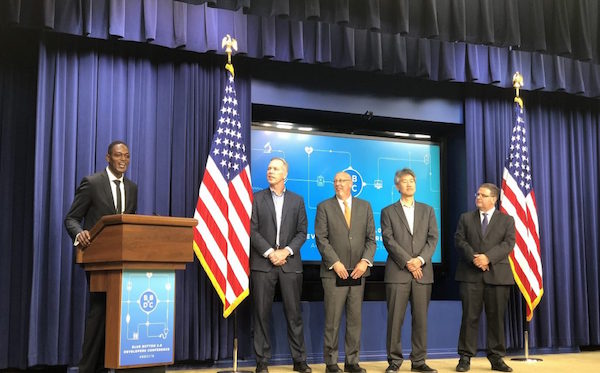 Six major technology companies have thrown their support behind the White House's initiative to use an open source, collaborative, approach to accelerate the progress of health data standards and interoperability and to give patients access and control of their medical records. The companies; Amazon, Google, IBM, Microsoft, Oracle, and Salesforce signed a pledge that was presented at the White House's Blue Button 2.0 developer conference. The conference took place last Monday. Dean Garfield, president and CEO of the Information Technology Industry Council (ITI) told the press that “As transformative technologies like cloud computing and artificial intelligence continue to advance, it is important that we work towards creating partnerships that embrace open standards and interoperability.
Six major technology companies have thrown their support behind the White House's initiative to use an open source, collaborative, approach to accelerate the progress of health data standards and interoperability and to give patients access and control of their medical records. The companies; Amazon, Google, IBM, Microsoft, Oracle, and Salesforce signed a pledge that was presented at the White House's Blue Button 2.0 developer conference. The conference took place last Monday. Dean Garfield, president and CEO of the Information Technology Industry Council (ITI) told the press that “As transformative technologies like cloud computing and artificial intelligence continue to advance, it is important that we work towards creating partnerships that embrace open standards and interoperability.
- The Future Is Open
- Login to post comments